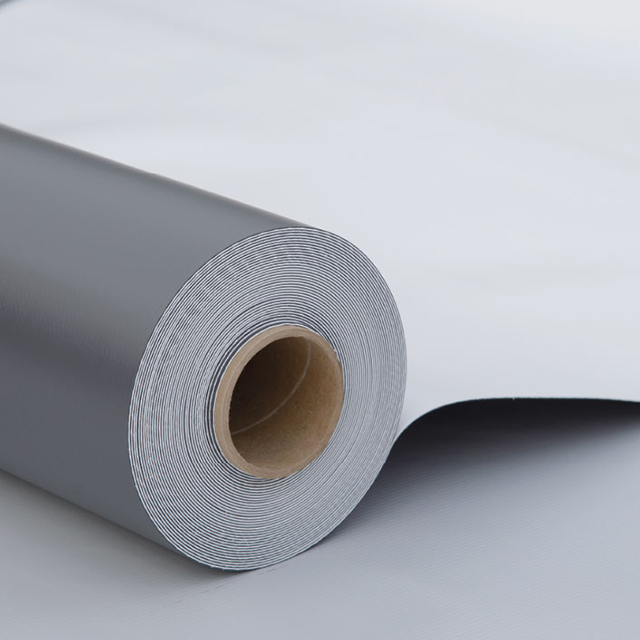Views: 0 Author: Site Editor Publish Time: 2025-03-21 Origin: Site







Water damage can ruin a building's structure, making waterproofing essential. Did you know that almost 83% of building defects are caused by water damage?
PVC membrane waterproofing is one of the best solutions for protecting buildings. In this article, we’ll explore what PVC membrane waterproofing is and why it's a top choice for long-lasting protection.
PVC membrane waterproofing involves using a durable plastic material, polyvinyl chloride (PVC), to protect surfaces from water infiltration. This waterproofing method creates a seamless barrier that resists water, making it ideal for various building applications. Waterproof membrane is a high-quality product that creates an invisible watertight barrier for your walls, ceilings, and floors. It not only provides waterproofing but also prevents condensation build-up and stops other liquids from penetrating the surface.
In construction, PVC membranes help maintain the structural integrity of buildings by preventing moisture from causing damage. Whether it’s protecting a roof, foundation, or other surfaces, PVC membranes play a crucial role in keeping buildings dry and intact.
Waterproofing is essential to protect buildings from moisture damage, which can cause mold, mildew, and structural decay. Without proper waterproofing, water can seep into walls and floors, weakening the building's foundation.
This protection is especially vital in areas exposed to high moisture, such as roofs, basements, and bathrooms. Waterproofing not only improves the lifespan of the structure but also ensures a healthier living environment by reducing the risk of dampness and mold growth.

PVC membranes are made from a combination of polyvinyl chloride, plasticizers, stabilizers, and reinforcing materials. The plasticizers give the membrane flexibility, while stabilizers enhance its resistance to UV light and heat. Reinforcement materials, like fiberglass or polyester woven scrims, are incorporated to add strength and durability.
These membranes are lightweight yet strong enough to withstand harsh conditions, including extreme weather and chemical exposure, which makes them an excellent choice for waterproofing.
PVC membranes are designed to prevent water penetration by creating a watertight seal. They are flexible, which allows them to conform to different surfaces, ensuring full coverage. The membranes also have a high resistance to UV radiation, chemicals, and punctures, which extends their lifespan and effectiveness.
The material’s fire-resistant properties further add to its appeal, making it a reliable option for both residential and commercial waterproofing applications.
PVC membranes are versatile and can be used in a variety of applications, including:
Roofs: Ideal for both residential and commercial roofing.
Foundations and Basements: Protects below-ground areas from water ingress.
Bathrooms and Kitchens: Withstand moisture and chemicals in high-humidity environments.
Green Roofs and Industrial Facilities: Eco-friendly and durable solutions for specialized roofing.
Swimming Pools and Reservoirs: Provides reliable waterproofing for areas exposed to constant water contact.
PVC membranes can be installed in different ways, depending on the specific project needs:
Fully Adhered: The membrane is glued directly to the surface, ideal for areas where it’s difficult to use fasteners.
Mechanically Attached: The membrane is fastened using screws or barbed plates, commonly used for buildings in areas prone to high winds.
Ballasted: The membrane is loosely laid on the surface and held in place with ballast, such as concrete or rocks.
Each installation method offers unique advantages, ensuring a custom solution tailored to your project’s needs.
PVC membrane waterproofing offers durability, cost-effectiveness, and versatility, making it an ideal choice for various projects. Its long-lasting, eco-friendly properties ensure reliable protection. Waterproof membrane, like the high-quality products offered by PENNINT, creates a seamless barrier, preventing moisture buildup and damage.
For optimal results, professional installation is recommended, especially for complex or large-scale projects. Experts can ensure proper installation, maximizing performance and longevity. PENNINT's comprehensive waterproofing systems provide reliable, long-term solutions for all your waterproofing needs.
PVC membrane waterproofing can last up to 50 years with proper maintenance, offering long-term protection for buildings.
Yes, PVC membranes are versatile and can withstand various climates, from extreme heat to freezing temperatures, making them suitable for a wide range of applications.
Yes, PVC membranes are relatively easy to install. They can be applied using different methods such as fully adhered, mechanically attached, or ballasted installation, depending on your project's needs.